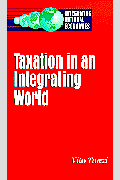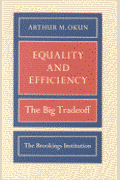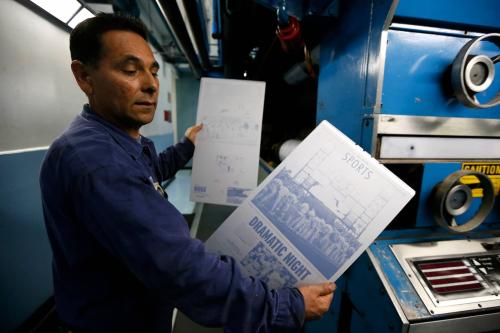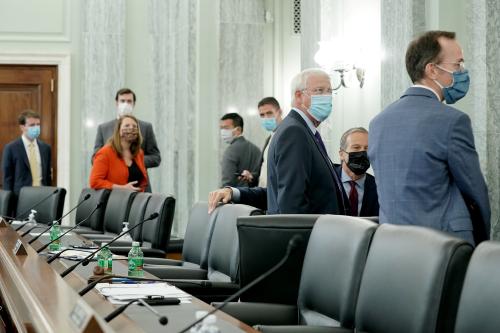This article originally appeared in American Banker on April 9, 2017.
One of the core tenets of America’s strategies to fight terrorism finance and money laundering is that financial institutions are under an affirmative requirement to “know your customer” — or KYC.
The KYC acronym has become ubiquitous in financial services regulation. It often appears alongside AML (for anti-money-laundering). But despite KYC’s importance, corporations are still allowed to leave a lot unknown about their ownership. They can still legally set up anonymous shell entities that are entitled to open bank accounts and are not required to provide information regarding the company’s beneficial owners.
This practice received heightened international attention almost one year ago with the publication of the now-infamous Panama Papers. How can banks be expected to know their customer when the customer is entitled to anonymity?
It is contradictory that the AML/KYC regime should exist alongside the ability for anonymous beneficial corporate ownership. This contradiction occurs because there is no federal requirement to disclose beneficial ownership and hence it is left to state governments to decide what to disclose while AML/KYC is enforced at the federal level.
Federal anti-money-laundering laws have never been able to override these state laws and have simply tried to work around them by imposing requirements on financial institutions. However, achieving the substantive goal of AML — to catch the bad guys — has grown more costly, burdensome and difficult under a state-based regime that allows anonymous ownership.
One reason for the growth in AML/KYC compliance cost has been the changing targets for financial surveillance. The anti-money-laundering regime was originally created in the late 1960s to target organized crime (the mafia) and tax cheats. Recall that even before the AML system was in place, Al Capone went to jail not for his violent gangster behavior but for tax avoidance. In the 1980s, AML was expanded to go after organized drug cartels and narco-traffickers. After Sept. 11, the Patriot Act significantly expanded AML to target terrorists and terror finance.
Each of these expansions logically responded to a key contemporary threat. However, these threats are substantively different: the AML regime used to target a multi-million-dollar drug ring that is trying to export cash out of America is very different from one used to track financing for sleeper cells of Al Qaeda in America, international rebel groups or foreign state-sponsored terrorists. Financial institutions can and should be expected to assist in this mission, but the mission has to be defined, prioritized and finite.
The current system is a policy lose-lose that makes it more difficult to achieve the goals of tracking down the bad guys, while imposing growing costs ultimately on all users of the financial system.
The current system is a policy lose-lose that makes it more difficult to achieve the goals of tracking down the bad guys, while imposing growing costs ultimately on all users of the financial system. That’s right, you and I may be paying higher fees as bank customers because of anonymous shell corporations.
The problem is even worse as states have incentives to promote companies to incorporate in their state because it generates income in the form of fees and taxes. Some states offer businesses specific incentives for setting up shop there. Delaware in particular specializes in this arrangement, with companies openly advertising on websites such as DelawareInc.com to “Form a Delaware LLC Without Names on the Public Record”. The race to the bottom some states are participating in threatens our security and drives up costs for honest businesses and consumers.
The federal government retains the ultimate right to regulate many activities and practices, including those used for foreign policy and enforcing federal criminal laws. Competition between states in areas that weaken national security is an example of unhealthy competition and one where federal standards would make sense. This is not only a federal right but ultimately a federal responsibility and one that peer nations are undertaking as part of the global war on terror.
The Financial Action Task Force, the independent international body promoting global standards in AML, recommended in 2012 that, “Financial institutions should be required to verify the identity of the customer and beneficial owner.” In FATF’s December 2016 evaluation report, the United States was rated as “non-compliant,” citing “unsatisfactory measures for ensuring that there is adequate, accurate and updated information on [beneficial ownership] … which can be obtained or accessed by competent authorities in a timely manner.”
Meanwhile, our allies such as the United Kingdom, Germany, France, Italy and Spain are moving forward in implementing beneficial ownership requirements. As a result, the United States is becoming an easier country for illegal activity. One study found that, “It is easier to obtain an untraceable shell company from incorporation services (though not law firms) in the United States than in any other country save Kenya.”
This is a problem with a simple solution. Bipartisan legislation has been introduced in Congress to require disclosure of beneficial corporate ownership. This disclosure is supported by many in the financial services industry; a proposal by the Clearing House to improve AML includes such a requirement.
Financial institutions are central players in the U.S. government’s war on terror and increasingly in other foreign policy more broadly, such as sanctions that rely on AML/KYC compliance. To the extent that this goal requires financial institutions to extend greater resources, those costs and benefits should be balanced accordingly.
But it is not practical to require financial institutions to be law enforcers when AML efforts are being hampered by certain states that are neither bearing the costs of their actions nor working cooperatively to achieve the national interest.








Commentary
Op-edState incorporation laws: Good for crooks, bad for banks
April 10, 2017